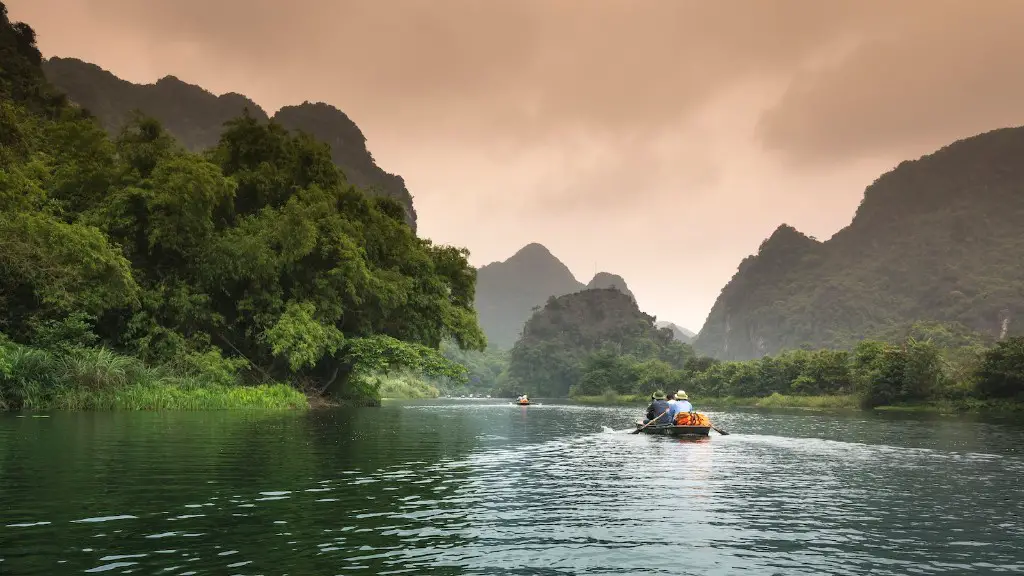The Yangtze River is the longest river in Asia and the third-longest river in the world.The Yangtze flows through 6 provinces of China, from the Tibetan Plateau all the way to the East China Sea. This incredible waterway has had a major part to play in the history of one of the oldest and most populous civilisations on the planet -China.
China’s cultural and physical landscape has been deeply shaped by the Yangtze River and its tributaries. For tens of thousands of years, Chinese ancestors created settlements along the banks of the river’s main path and its branches, cultivating the land and establishing a strong agrarian economy. Historians suspect that the Yangtze was the birthplace and early centre of the legendary Xia dynasty, the earliest known civilisation of China.
The Yangtze River’s impact on ancient and modern Chinese society is significant and wide-reaching.Today, the river propels the economic development of central and eastern parts of China through its trade, industry, and transportation. Hundreds of ports of call upriver and downriver facilitate more efficient and cost-effective ways to move goods, increasing the economic well-being of city-dwellers throughout China.
The Yangtze River is also incredibly important for eco-tourism and recreation in China. It is the largest river system in the country and boasts some of the world’s most beautiful landscapes and diverse species of plants and animals. Tourists from all over the world flock to see the incredible Three Gorges of the Yangtze, with its sweeping mountain views, majestic gorges and cascading waterfalls.
Resource for Agriculture
The Yangtze River has been a major source of food and nutrition for Chinese people for centuries. The river is known for its copious amounts of fish and its rich soil, making it an ideal resource for farming and agriculture. Since the dawn of civilization, Chinese people have relied upon the river’s resources to sustain their daily lives, devoting parts of it exclusively to seafood production and farming of important crops like rice.
The highly productive ecosystem of the river ensures a steady and reliable food source for its many inhabitants. Over time, this abundance of food has allowed the population of China to swell to its current immense size, demonstrating the importance of the Yangtze for China’s long-term growth.
Farmers living along the river also benefit from its remarkable navigability, as the river serves as an important trade route between different Chinese provinces. Fish, rice and other goods can be quickly and easily transported up and down the river, leading to an increase in agricultural production, goods available, and economic interdependence between regions.
The influence of the Yangtze River can also be seen in Chinese culture, art and literature. From the river’s beloved Three Gorges of the Yangtze, its stunning landscapes and impressive waterfalls, the Yangtze has inspired many works of art, poetry and stories over the centuries.
Economic Boosters
The Yangtze River is an economic powerhouse in China. Not only has it been at the heart of Chinese trade and commerce for centuries, it has also brought new industries and jobs to the area, allowing cities and businesses located near the river to benefit from the boost in economic activity.
The Yangtze River Economic Belt is the name given to the area surrounding the river, stretching from Shanghai in the east to Chongqing in the west. This area has become the most important and prosperous region in China, responsible for a huge percentage of the country’s GDP, thanks to the river’s continuing prowess as a business and trade route.
Yangtze shipping routes are among some of the busiest in the world, and transportation of goods up and down the river is incredibly efficient, allowing for quick delivery of goods from distant parts of the river to big cities and industrial ports. This has contributed significantly to the economic growth of the region, making the Yangtze an essential part of the Chinese economy.
In addition, the Yangtze is home to many of China’s largest and most important hydropower plants. These power plants provide an essential source of energy to the country, making a lasting contribution to environmental sustainability and economic growth.
Geopolitical Power
The Yangtze River has had a major impact on the geopolitics of China and the surrounding region. The river serves as a natural border between provinces and as a key strategic asset for the Chinese government, providing a reliable and cost-effective means of transport, communication and economic exchange.
The river has also been a major factor in international politics, with a number of countries claiming the Yangtze as their own. This includes India’s recent claims of sovereignty over the river’s areas in Sikkim and Arunachal Pradesh, and a long-standing border dispute between China and Vietnam relating to the Hoang Sa (Paracel) and Trapac (Spratly) islands in the South China Sea.
The Yangtze River is an important international waterway, linking Southeast Asia to the heart of Asia. This has enabled China to strengthen its ties to foreign countries, through both international trade and strategic alliances.
China’s geopolitics have been heavily influenced by the location and power of the Yangtze River. Its communication, transportation and economic networks have enabled Chinese authorities to act as a regional superpower, as well as an increasingly major player in global geopolitics.
Natural Resources
The natural resources of the Yangtze River provide a vital source of energy and minerals for its surrounding areas. This makes the river an invaluable asset to the Chinese people, providing necessary resources for construction, agriculture, industry and power generation.
For centuries, the Yangtze River has been an important source of iron ore and other precious metals, making it one of the major sources of steel production in China. Mining conducted in the river’s bed has yielded huge amounts of coal, providing energy to local industries and fuel to many of China’s major cities.
The Yangtze River is also essential to the production of nitrogen-based fertilisers, a key component of modern Chinese agriculture. Its waters provide important minerals, such as potassium, phosphorus, sulphur and magnesium, which the Chinese use for manufacturing consumer goods and generating electricity.
Today, the Yangtze River continues to be an important source of natural resources for China. Its rich sedimentary deposits have been used extensively to build the Three Gorges Dam, the world’s largest hydroelectric power station, providing energy to millions of people in China and beyond.
Environmental Challenges
The Yangtze River is not without its environmental challenges. The river is under threat from pollution due to over-extraction of water from it as well as from industries and wastewater that are draining into it.
In recent decades, extensive sand dredging has taken place in the Yangtze River for construction purposes, leading to ecological degradation of the river and its tributaries. This has led to excessive sedimentation and poisoning of drinking water sources along the river, causing serious health concerns for local communities.
The Chinese government is increasingly aware of its reliance upon the Yangtze River and the need to protect it. This has seen the implementation of strict regulations and policies aimed at improving water quality, such as restrictions on wastewater discharge and the introduction of wastewater treatment plants.
In addition, the Chinese government has made great efforts to increase public education and awareness of environmental problems related to the river. Environmental NGOs, such as Green Peace and WWF, have also been heavily involved in raising awareness of the need to protect the Yangtze’s valuable ecosystems.
Conclusion
The Yangtze River has been the beating heart of China for many centuries and is an incredibly important part of the country’s history and culture. From providing essential natural resources to driving economic growth, the Yangtze has enabled China to become the superpower it is today.
In recent years, the Chinese government has taken steps to protect and preserve the Yangtze River by introducing stricter regulations and participating in international efforts to reduce its environmental impact. However, there is still much to be done and China must continue to take the lead in protecting this vital waterway for the benefit of its citizens and the future of the country.





